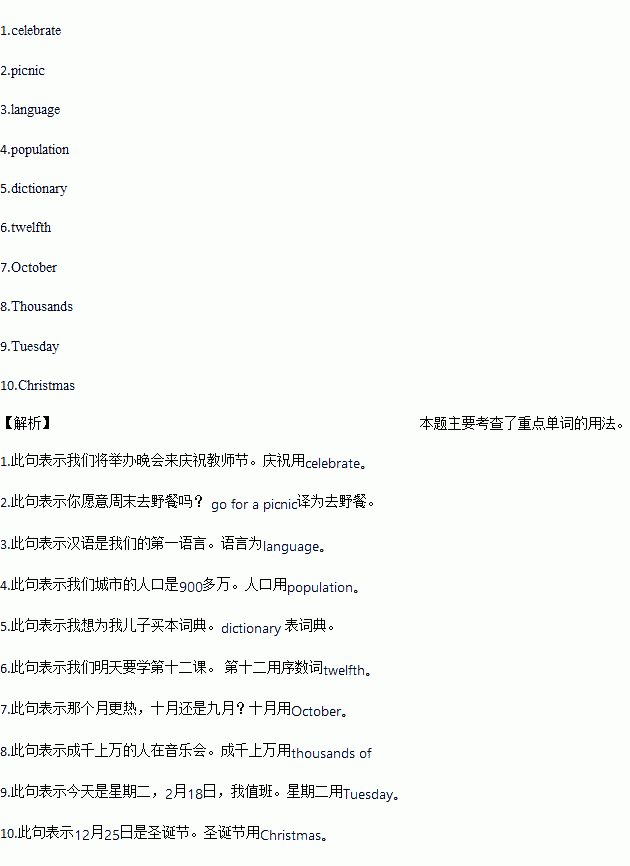题目内容
1.We are going to have a party to__________ (庆祝) Teachers' Day.
2.Would you like to go for a _________(野炊) with us this weekend?
3.Chinese is our first ___________(语言).
4.The__________ (人口) of our city is over nine million.
5.I want to buy a _____________(字典) for my son.
6.We are going to learn the _________(第十二) lesson tomorrow.
7.Which month is hotter, _________(十月) or September?
8._________ (数以千计) of people are at the concert now.
9.Today is __________(星期二), February 18th. I'm on duty.
10.December 25th is _________(圣诞节) Day.
练习册系列答案
相关题目

